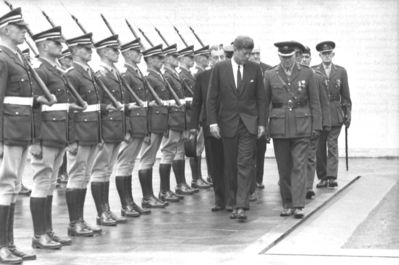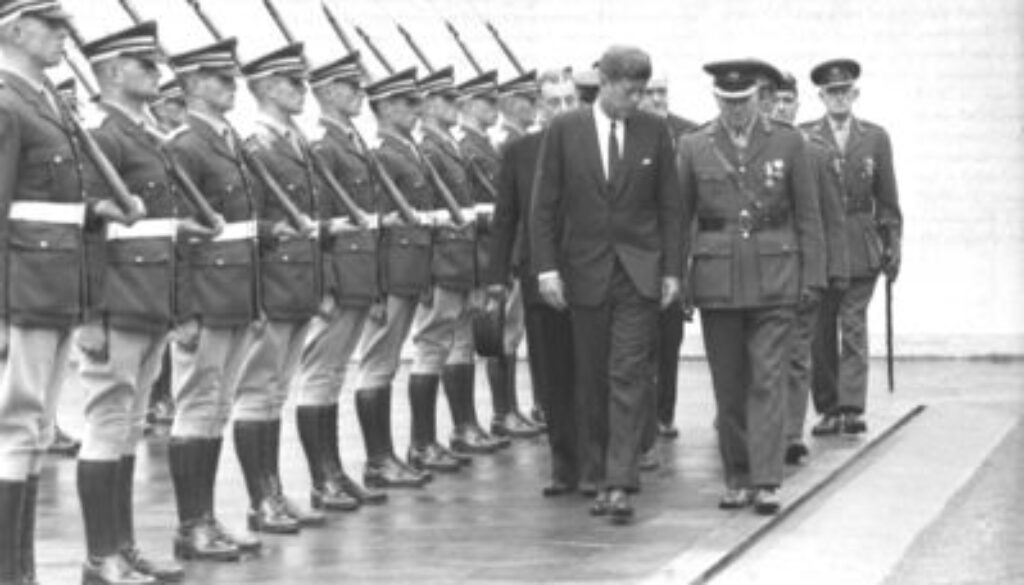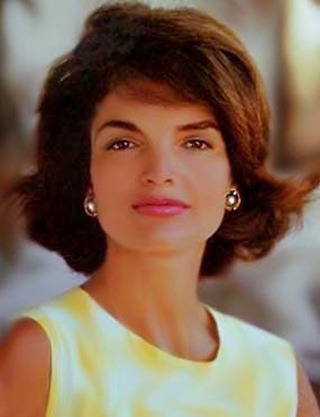President Kennedy in Ireland

I was deeply moved by the commemoration of the 50th anniversary of John Kennedy’s assassination. The films and reminiscences of his administration transported me back to a world of childhood innocence, evoking all kinds of wonderful memories. And then we came to the shock and grief of his death and his funeral and the dark period of national mourning. Even after 50 years, these stirred up powerful memories and emotions.
I’ve just begun a wonderful book, JFK in Ireland, by Ryan Tubridy, a Christmas gift from my daughter, that shows John Kennedy at his finest, on his trip to Ireland in the summer of 1963. JFK spoke in glowing terms about the trip, and showed his home movies to his family again and again.
As a Boston Boy who has traveled to Ireland here and here, I know something of this feeling. I remember thinking that if I had taken these trips as a student at Ames School in Dedham, Principal Frank Liddell would have held an all-school assembly, and all the students and teachers would have listened with rapt attention to every detail.
“I think it’s important to remember,” I wrote, “that unlike many other peoples who came to America, the Irish didn’t emigrate because they wanted to. They had no choice. They were not received as well as they ought to have been, and times were hard for a good long while. Is it any wonder, then, that they would pass on to their grandchildren and great-grandchildren their fond, even passionate memories of this exquisitely beautiful country with its 45 shades of green?”
On my second trip I met the Lord Mayor of Dublin and the President of Ireland and rode at the head of the St. Patrick’s Day Parade. “Back in Boston,” I wrote, “I’d have to be careful not to go on about it too long, for fear it would be said I was putting on airs.”
Tubridy’s book opens with a facsimile of the hand-written letter that Jacqueline Kennedy sent to the President of Ireland, describing how much President Kennedy’s trip had meant to him, and thanking him for sending the Irish Cadets to serve as an honor guard at his funeral.
The President had taken special notice of the cadets at a service in memory of those killed in the Easter Uprising of 1916, and Mrs. Kennedy had asked that they perform the same drill at Arlington National Cemetery.
I hope you’ll take a look at the letter, because it shows how gracious this lady was, even in that time of great sorrow.
“He was so conscious of his heritage — and so proud,” she wrote, “and Ireland can be proud that they gave the United States its greatest president. Now those words may sound the words of a bereaved wife — but in a generation that is what they will be teaching to school children.”
All this brought to mind another remiscence of JFK’s trip to Ireland that I read about in Walking to Canterbury by Jerry Ellis. Ellis meets an elderly woman named Maggie, who holds his hands and tells him she has held the hands of the pope himself and John F. Kennedy.
“The pope, bless him, was easy to get to because I was in the right line. But President Kennedy was a slippery catch. It was Dublin, darling, and the place was so packed that air itself was getting the life squeezed right out of it. There I was, tiny me, no taller than a weed, with everybody’s elbows banging my ears.
“But I had two American flags, and you know what I did? I did right the opposite of all those around me. They waved their flags up and down, but I waved mine sideways with the force of a gale. Darling, I was a woman on a mission, and I didn’t stop waving those Stars and Stripes till the president himself made his way through the sea of Irishmen to pick me from the crowd. When he did, I dropped the flags and grabbed both his handsome hands.
“He wasn’t just a man. He was a legend, and right then and there I became part of it in my own small way. Now that legend holds your hands. We’re links in a chain of history, tragic as it turned out to be for him and his poor family and the rest of us who cared.”


March 11, 2014 @ 1:21 pm
Steve-
I just stumbled upon your blog today. Fascinating! Am envious of your trips to Ireland.
Back in the ’60s, I spent one year at the Ames School. Fond rememberances of Mr. Liddell and his assembly programs. In a Monastery Garden/Kyrie still ring in my head.
That fateful November reminds me of another Frank — Hoffman — at the new Dexter School, called to the hallway by a parent to inform all of us in his 6th grade class about President Kennedy’s death.
Thank you for the history lesson and the memories!
Debby (Harding) Williams, Laurinburg, NC
December 11, 2014 @ 7:12 pm
Steve,
As Frank Liddell’s granddaughter, I remember hearing about the all-school assemblies. You’re right — I’m sure he would have held one to hear all the details!
Best,
Meridith
February 9, 2019 @ 5:49 pm
I remember Mr Liddell from the Ames School.. Was a long time ago with teachers like Mrs Melanson, Miss Hale, Mrs Cooper, Mrs Niederberger and Mrs. Robinson.